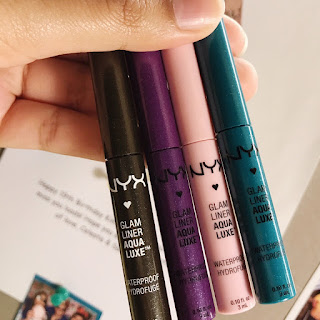Hi guys,
As some of you guys may know, I work within a company that gives me access to endless skincare products and knowledge about them. Skincare is probably one of the most important steps in your daily regime and I know a lot of people tend to struggle with their skin - from those pesky hormonal breakouts to cystic acne to just the good ol' textured skin (looks pointedly at Rama).
If you've ever read the ingredients list on a box of moisturiser, you'd find a whole bunch of gibberish mixed in with some elements that just seem too confusing to pay much attention to (I know I've overlooked it on more than one occasion). So I'm hoping this post might make it a bit easier for you guys to choose products best suited to your skincare type and concern.
Your skin consists of three main layers: the epidermis, dermis and hypodermis. The epidermis acts as a protector from external environmental factors while the dermis basically makes up the structure of your skin. It's where you can find blood vessels, follicles, glands, and the body's water supply, along with collagen and elastin. This is the layer you want to target most.
The average skin cycle takes about 28 days - which is why it's important for those trialling new products to keep up the routine for at least a month. This allows you to see if results are actually showing up with continued use - of course, if you got a reaction then discontinue use.
To make things a bit simple for everyone, there are three different skin types that we can all fit into; the oily, combination and dry skin types. If you tend to have an oilier skin type, the main distinguishing factors would be the presence of thicker-looking skin, enlarged pores, being prone to breakouts, and obviously oiliness throughout the day. In contrast, drier skin types may sometimes experience dry patches, small/invisible pores, tightness and matte looking skin. But don't confuse dryness for dehydration - they're two completely different things. The combination type houses two different types - the normal/oily or normal/dry which is a combination of all these factors.
A typical skincare regime would include at least three main elements - cleansing, toning and moisturising. Basic, easy and quick. But if you're looking for it, more advanced skincare regimes include exfoliating, serums, masks, eye products, neck creams, instant gratification treatments etc etc.
Skincare is such a broad topic that it would take pages for me to go completely in depth with it. So to make this experience slightly sweeter and more of an easier read, I'm just going to go through your essentials (sorry, guys).
Ingredients to look out for:
Hyaluronic Acid (or sodium hyaluronate)
Honestly my personal favourite, hyaluronic acid has saved my skin from my teenage-excess-sebum-producing-leather-looking skin days. Able to hold more than 1000x it's own weight in water, HA is probably one of the most important ingredients to look out for if you're constantly surrounded by free radicals (namely pollution, air conditioning etc) which lead to dehydration within your skin. Your body's supply of HA decreases with age, so it's important to regularly supply your skin with it to minimise the appearance of wrinkles, loss of volume, and loss of elasticity.
Alpha-hydroxy Acids (AHAs)
AHAs are naturally occurring acids that you can find everyday in products that you consume. They are a class of various acids that, when applied to the top of your epidermis, break apart the binds of dead skin cells on your skin to remove them, while increasing cell turnover which allows for the growth of new skin. AHAs include: glycolic acid, lactic acid, tartaric acid, malic acid, mandelic acid and citric acid.
Beta-hydroxy Acid (BHA)
While AHAs are made up of various types of acids, the only BHA is salicylic acid. Many of you may have seen this term in your cleansers as it works as a gentle exfoliant and antibacterial agent. Salicylic acid is derived from willow bark, making it a naturally occurring substance. It can penetrate into your pore unlike AHAs and gets rid of dead skin cell buildup within the pore.
On a side note, if you have an aspirin allergy, please stay away from salicylic acid as this comes from the same family as aspirin.
Vitamin C (ascorbic acid, ascorbyl palmitate, magnesium ascorbatol)
One of the most popular ingredients in any skincare product, Vit C has been scientifically proven to remove those pesky fine lines and wrinkles. If you're looking to get rid of hyperpigmentation, stimulate collagen synthesis and protect your skin from free radical damage, then look for Vitamin C especially within your products.
Vitamin A (retinol, retinoic acid, retinyl palmitate, hydroxypinnacolone retinoate)
Ah, the mother of all ingredients - retinol. Retinol has been used in many night time skincare products for a while now, and the reason for this is because retinol can actually deactivate when met with UV rays. However, some clever person has decided to combine retinol with various other ingredients and have found a way around this (ferulic acid is one definitely). Retinol encourages the reproduction of skin cells and stimulates collagen production, which can definitely help with signs of ageing.











